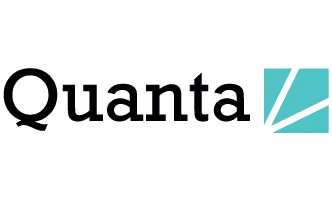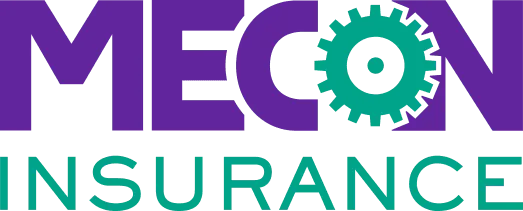Public & Product Liability Insurance: Protecting Your Business in Australia
Operating a business in Australia comes with inherent risks. Public and product liability insurance provides crucial financial protection against claims of injury or property damage caused by your business activities or products. This insurance safeguards your assets and ensures business continuity in the face of legal action.
What is Public Liability Insurance?
Public liability insurance protects your business from financial loss if a third party, such as a customer, supplier, or member of the public, makes a claim against you for injury or property damage due to your negligence. As a business owner, you have a duty of care to anyone who interacts with your business. Accidents can happen, and public liability insurance can help cover the costs of potential legal action.
What does Public Liability Insurance Typically Cover?
- Third-party property damage: If your business activities cause damage to someone else's property.
- Third-party personal injury or death: If someone is injured or dies due to your business's negligence.
- Legal costs: Expenses incurred in defending a covered claim.
- Compensation payments: Amounts you are legally required to pay to a third party due to a covered claim.
What isn't Covered by Public Liability Insurance?
- Injured workers: Claims from injured employees are covered by workers' compensation insurance.
- Punitive damages: Additional damages awarded for particularly bad behaviour.
- Product recalls: Costs associated with recalling products from the market.
- Asbestos: Incidents involving asbestos (typically covered under separate asbestos liability insurance).
- Aircraft Products: Claims relating to aircraft products.
Why Do You Need Public Liability Insurance?
Accidents can happen, no matter how careful you are. A simple slip and fall in your store, or accidental damage to a client's property can result in expensive legal claims. Public liability insurance provides peace of mind and helps ensure your business can continue operating.
Example: A Slip and Fall Claim
A customer slips on a wet floor in your shop and injures their wrist. Without public liability insurance, you could be responsible for paying substantial medical bills and compensation. Your public liability policy will cover the claim, potentially saving your business from financial ruin.
What is Product Liability Insurance?
If your business manufactures, sells, or supplies products, you need product liability insurance. This type of cover protects you from claims for injury, death, or property damage caused by a faulty product. Even if you didn’t manufacture the product, you may still be held responsible if you sell, repair, or supply the goods.
What Does Product Liability Insurance Cover?
Product liability insurance covers you for:
- Injury or death: If a product you supply causes injury or death.
- Property damage: If a product damages someone’s property.
- Legal costs: Associated with defending a claim.
How is it different from Public Liability Insurance?
While public liability insurance covers incidents on your premises or due to your general business activities, product liability insurance specifically covers incidents caused by the products you produce or supply. Many businesses choose to combine these covers into a comprehensive policy.
Who Needs Product Liability Insurance?
If your business involves the design, manufacture, import, sale, supply, or repair of goods, you need product liability cover.
Public Liability vs Professional Indemnity Insurance
Public liability and professional indemnity insurance are distinct types of cover.
- Public Liability Insurance protects your business against claims for injuries or damages caused by your business activities.
- Professional Indemnity Insurance protects you against claims for financial loss or damages arising from your professional advice or services.
Example Scenario:
- Public Liability: A client trips and falls in your office due to a loose floorboard. Your public liability policy will handle the claim.
- Professional Indemnity: An accountant gives incorrect financial advice resulting in financial loss for a client. The accountant's professional indemnity insurance will manage the claim.
Is Public Liability Insurance Compulsory?
While public liability insurance isn't mandatory for most businesses in Australia, certain industries and professions require it. Requirements can also vary by state and territory. Even if it's not a legal requirement for your business, it's highly recommended that all businesses have it due to the financial risks associated with potential liability claims.
Public Liability Insurance Requirements by State and Territory
| State/Territory | Compulsory? |
|---|---|
| New South Wales | Not mandated by state law. |
| Victoria | Not mandated by state law. |
| Queensland | Not mandated by state law but may be required for certain industries. |
| Western Australia | Not mandated by state law. |
| South Australia | Compulsory for certain types of businesses. |
| Tasmania | Compulsory for certain types of businesses. |
| ACT | Not mandated by state law. |
| Northern Territory | Not mandated by state law. |
Can Self-Employed Individuals Get Public Liability Insurance?
Yes, public liability insurance is available to anyone in business, including the self-employed. It is highly recommended to help protect your business against potential claims of injury or property damage.
How Much Does Public Liability Insurance Cost?
The cost of public liability insurance depends on your specific business activities, products and level of risk. It is best to choose the level of cover that you can comfortably afford in order to safeguard your business.
Why is Liability Insurance Important?
Some types of liability insurance are mandatory for certain professions (eg. Electricians in Queensland), while others are optional. Anyone who interacts with the public, sells goods or provides services should have liability insurance in place, given the potential risks involved.
What Does Liability Insurance Cover?
The coverage will vary depending on the specific type of insurance. However, generally it includes legal defence costs, compensation payments and any related financial losses.
Understanding Your Liability
As a business owner or operator, you have a legal duty to take reasonable care to avoid causing harm to others. This is referred to as your ‘duty of care’ which means if your actions or inactions cause harm to a person, you could be found liable.
How to Safeguard Yourself Against Liability Claims
- Identify Risks: Conduct a thorough risk assessment to identify potential hazards in your business.
- Minimise Risks: Implement measures to reduce or eliminate risks.
- Use warning signs, proper storage and security
- Provide training
- Use appropriate safety equipment
- Insurance: Obtain appropriate insurance cover like public & product liability insurance to protect against potential claims
Typical Exclusions in Liability Insurance
- Workplace Injuries: Claims from your employees are generally covered by workers compensation insurance.
- Property Damage: Damage to your own property is usually not covered.
- Asbestos: Claims involving asbestos.
- Faulty Workmanship: Costs associated with rectifying errors in your work.
- Professional Advice: Claims related to professional advice (covered by professional indemnity insurance).
- Product Recalls: Costs of recalling products.
- Fines and Penalties: Fines imposed by regulatory authorities.
- Contractual Liability: Liability you assume under a contract.
Protecting Your Business: Examples of How Liability Insurance Can Help
- The Cafe Slip: A customer slips on a wet floor in your cafe and is injured. Your public liability policy will cover their medical bills and legal costs.
- The Faulty Product: A product you sell causes harm to a customer. Your product liability policy will cover legal and medical costs.
- The Electrical Mishap: An electrician working for you causes a fire due to negligent work. The business may be responsible for the property damage.
- Food Poisoning: Diners suffer food poisoning after eating at your restaurant. You may be liable for the associated costs.
Public and product liability insurance are essential for businesses in Australia. By understanding the risks, taking steps to minimise those risks, and securing the appropriate insurance coverage, you can safeguard your business from potentially devastating legal claims.









